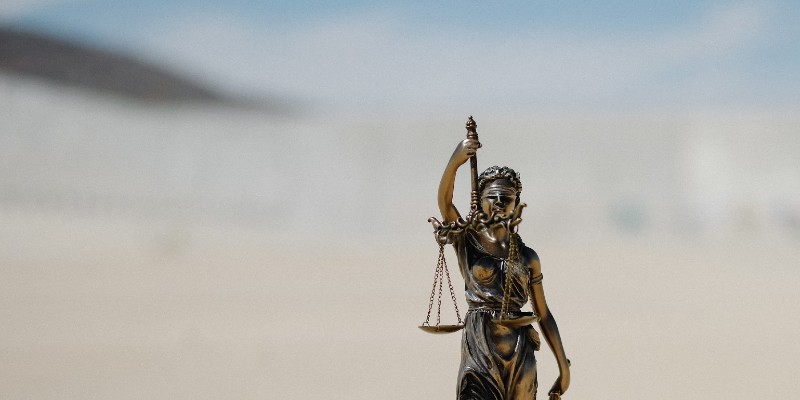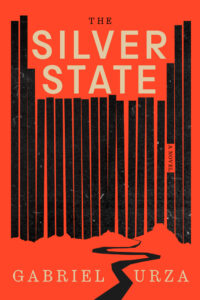When a federal judge ordered the stop of the Trump administration’s mass deportation of supposed gang members to an El Salvadoran prison without process of law, El Salvador’s president Nayib Bukele responded with a chilling post on X: “Oopsie. Too late.”
Trump and Bukele’s collective shrug at the courts’ demand for due process is a thuggish rehash of president Andrew Jackson’s response to an adverse Supreme Court ruling in 1832: “[Chief Justice] John Marshall has made his decision, now let him enforce it.” Now, as the judiciary and the Trump administration seemed locked in a game of constitutional chicken, I find myself empathizing with the federal judges who are faced with the task of enforcing the rule of law, at the risk of delegitimizing it entirely.
There are moments in every attorney’s career when we are faced with an undeniable truth: that the principles and caselaw we were trained to accept as sacrosanct, as unmovable as the walls of the courthouse themselves, might evaporate in an instant in the face of raw power. As a public defender straight out of law school, these moments came more quickly and more often than I would have liked, but none captures this moment of disillusion more than in my third year of practice, when I was appointed to represent Mr. R.
Mr. R was accused of Driving Under the Influence, as run-of-the-mill of a case as it gets, and one that should have been quickly resolved but for two facts: Mr. R was undocumented, and he didn’t have the money to post bail. There was a legal issue that I wanted to litigate, and while his case moved forward I asked the court to release Mr. R on his own recognizance under strict court supervision. The request was a predictable one; after all, Mr. R had already been in jail for 153 days. I presented evidence to the court that Mr. R wasn’t a flight risk, that he had a job, that he had a place to live.
The prosecutor opposed the release, asking for a brief continuance “to address the issue in writing.” The next day I received an email from the same prosecutor, letting me know he’d contacted ICE to request that Mr. R be investigated for an immigration violation. A day later, ICE had placed a detainer on Mr. R, meaning not only that he wouldn’t be released from jail pending the adjudication of his case, but that when it was over he would be deported. His penalty for exercising his right to request bail, in short, was deportation.
What the prosecutor had done was illegal—I filed a motion for “vindictive prosecution,” which we won. But the prosecutor merely shrugged at the court’s ruling; there was no penalty imposed on the prosecutor for violating Mr. R’s due process rights, and the machinations of the deportation process, once begun, were out of the court’s jurisdiction. Oopsie. Too late.
Immigration has often been used as a cudgel to avoid the bother of due process that the law ordinarily affords—even though it’s long been held that due process is a right afforded to all people in the US, citizen or not. But that’s not the lesson Mr. R’s case taught me. What I learned about the law that day is that it requires good faith.
Lawyers, perhaps more than anyone, understand that the legal system is built on good faith, and how quickly the law’s framework becomes unpredictable when those who wield its greatest power—the police, the prosecutors, the executive branch—do so in bad faith. In law school, we’re taught that the law is a “system” the way a Rube-Goldberg machine is a system; it may, at times, appear absurdly complex, but gravity still rules. Physics apply. The pool ball rolls down a chute, knocks over the can that pulls the string that rings a bell. A case’s facts are fed through constitutional principles as enshrined and promoted in caselaw, and a predictable “justice” is spit out on the other side of the machine.
But what cases like Mr. R’s—and now Kilmar Abrego Garcia’s—make painfully clear is that American criminal justice is a “system” the way weather is a system. It is often chaotic, unpredictable. The weatherman might have predicted sun today, but tell that to the rain on your driveway.
Perhaps that’s why I have been so unsettled by the recent high-profile actions of the people who understand the law best: the lawyers. One can hardly read the headlines without seeing evidence of the legal community’s complete loss of faith in the rule of law when confronted with the strongarm tactics of the Trump administration—white shoe law firms, university counsel, even judges—who, rather than confront the threat, the chaos of raw power, try to cut a deal.
What I see here isn’t necessarily cowardice—OK, not just cowardice. Because the absurdly multi-named firms like Paul, Weiss, Rifkind, Wharton & Garrison and Skadden, Arps, Slate, Meagher & Flom, are certainly acting like cowards when faced, perhaps for the first time in their privileged existence, with a real existential fight—when they’re fighting for themselves instead of a client. What I see is a warning. It’s the rule of the Serengeti—when the lions come running, it’s because there’s an elephant on the loose.
The point of the chaos that the Trump administration is sowing, is precisely this—to convince us that there’s never been a rule of law. That we can’t expect good faith. And if the nation’s top lawyers are bailing on the rule of law, then we peasants better get in line. I’ve been thinking of this, lately, as the “Tinkerbell” moment in the American legal system. Its existence requires that we believe in it.
Thankfully, some of us are starting to fight back. Braver law firms are litigating the clearly unlawful executive shakedowns. University counsels are beginning to realize that they have a common cause, that there is strength in numbers. And federal judges are standing firm in the face of intimidation campaigns by the Trump administration. These lawyers are reminding us of a critical principle: good faith isn’t required from those who hold power, but it can be demanded.
Mr. R’s deportation taught me as a young public defender that the integrity of the legal system relies on the good faith of its executors. This can feel—as it often does in this moment—that justice can’t exist in the face of raw power. But to concede this is to prove the bad actor’s point. The rule of law requires that we believe, and act, like it exists.
***
Gabriel Urza is the author of The Silver State, now available from Algonquin Books.


















